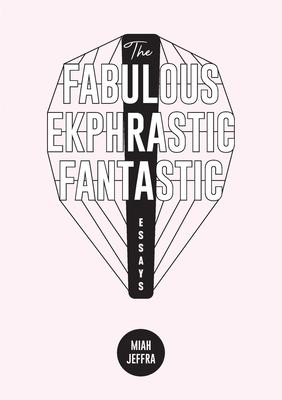"A river's edge, if approached too close, can sweep a body beyond itself." In The Fabulous Ekphrastic Fantastic!, Miah Jeffra perfects apostrophe as canticle, a host of heroes beckoning the reader a knee deeper into the waters of another selfhood, Madonna, Mary Shelley, Felix Gonzalez Torres, Plato, and Jeffra's mother among them. At once gossamer and gauze, Jeffra explores the nature of gender, sexuality, aesthetics, and love, taking a tiny hammer to the stability of the limits of perception, troubling the tether between perception and memory. At once memoir and cultural criticism, The Fabulous Ekphrastic Fantastic! discovers itself as a book about forgiveness, family, and the truths we find in "the lightness of a door," "the probability of a radio," the long line between one story and another.

"A river's edge, if approached too close, can sweep a body beyond itself." In The Fabulous Ekphrastic Fantastic!, Miah Jeffra perfects apostrophe as canticle, a host of heroes beckoning the reader a knee deeper into the waters of another selfhood, Madonna, Mary Shelley, Felix Gonzalez Torres, Plato, and Jeffra's mother among them. At once gossamer and gauze, Jeffra explores the nature of gender, sexuality, aesthetics, and love, taking a tiny hammer to the stability of the limits of perception, troubling the tether between perception and memory. At once memoir and cultural criticism, The Fabulous Ekphrastic Fantastic! discovers itself as a book about forgiveness, family, and the truths we find in "the lightness of a door," "the probability of a radio," the long line between one story and another.